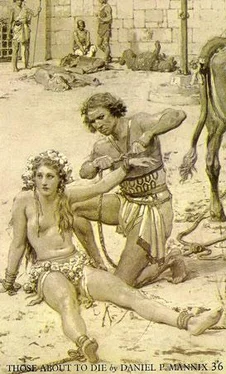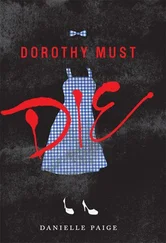Daniel Mannix - Those About to Die
Здесь есть возможность читать онлайн «Daniel Mannix - Those About to Die» весь текст электронной книги совершенно бесплатно (целиком полную версию без сокращений). В некоторых случаях можно слушать аудио, скачать через торрент в формате fb2 и присутствует краткое содержание. Год выпуска: 1972, ISBN: 1972, Издательство: Mayflower Books Ltd, Жанр: Исторические приключения, на английском языке. Описание произведения, (предисловие) а так же отзывы посетителей доступны на портале библиотеки ЛибКат.
- Название:Those About to Die
- Автор:
- Издательство:Mayflower Books Ltd
- Жанр:
- Год:1972
- ISBN:978-0583121347
- Рейтинг книги:4 / 5. Голосов: 1
-
Избранное:Добавить в избранное
- Отзывы:
-
Ваша оценка:
- 80
- 1
- 2
- 3
- 4
- 5
Those About to Die: краткое содержание, описание и аннотация
Предлагаем к чтению аннотацию, описание, краткое содержание или предисловие (зависит от того, что написал сам автор книги «Those About to Die»). Если вы не нашли необходимую информацию о книге — напишите в комментариях, мы постараемся отыскать её.
Those About to Die — читать онлайн бесплатно полную книгу (весь текст) целиком
Ниже представлен текст книги, разбитый по страницам. Система сохранения места последней прочитанной страницы, позволяет с удобством читать онлайн бесплатно книгу «Those About to Die», без необходимости каждый раз заново искать на чём Вы остановились. Поставьте закладку, и сможете в любой момент перейти на страницу, на которой закончили чтение.
Интервал:
Закладка:
There was a stone shelf that served as a bed, with a straw-filled mattress on it, and a niche in the wall where Flamma could keep a statue of whatever god he fancied. There was no other furniture. On the walls were scratched girls' names with addresses below them, pictures of naked women, "Sabinus hic" (Kilroy was here), prayers to various gods, dirty cracks about the gladiator master and the dates of fights. In Pompeii, these drawings still survive. There were also a few crude drawings of actual combats—a Secutor enveloped in the net but still stabbing at the Retiarius with his sword, and some fights between different types of gladiators. Over one figure was scribbled "Bebrix, 20 wins" and over another “ Nobilior, 11 wins." Nobilior was down, making the sign for mercy to the crowd by holding up one finger of his left hand. Below him was the sign 0 which meant "killed"
Being a phlegmatic man and used to iron discipline, Flamma settled down in the school without much difficulty. Other gladiators had more trouble. The barracks had to be constantly patrolled night and day to make sure the men didn't commit suicide, but even so some men were able to outwit the guards. One man, on his way to the school in a cart, managed to stick his head in the turning wheel and broke his neck. Another man took a pottery bowl in which he was given water, broke it into small pieces, and then ate the pieces. Flamma couldn't understand what was bothering these men. The food was fine, the bed comfortable, and girls were brought in once a week. He had to fight only about twenty times a year, and there were no long marches, sudden ambushes or long campaigns as in the army. Frankly, he'd never had it so good.
For the first few weeks Flamma practiced sword strokes against a wooden pole in the exercise court and then against a dummy hung from a pole under the direction of the lanista. He had to learn to use his left hand as readily as his right, as some fighters were suckers for a good southpaw. In order to build up his muscle, the weapons given him were twice as heavy as the ones he'd use in the arena. Then he fought other gladiators using blunt weapons. At last real bouts were put on, but stopped when one man was wounded.
The men all messed at a long table and their meals were carefully prepared by expert dieticians. They were fed a great deal of meat and barley—meat because of its protein content and barley because, so it was believed, the rich grain covered the arteries with a layer of fat and so helped to prevent a man from bleeding to death from a wound.
Perhaps what sold Flamma on being a gladiator more than anything else was the beautiful armour he was allowed to wear in the arena. As the son of poor Italian peasants, he had never owned anything really impressive in his life and was a pretty simple fellow anyhow. (Right up to the first World War, soldiers insisted on wearing full dress into battle and many a man frankly joined the army so he could wear a busby or a nice red uniform with brass buttons. Even today a general had seriously claimed that the reason so many men join the Marines is that the Marine Corps still retains its ornate full dress, and maybe the general is right.) To a man like Flamma, fine armour meant a lot. His helmet had ostrich or peacock feathers. His breastplates were inlaid with gold and silver. His sword hilt was set with precious stones. His bronze shield was covered with brass studs and painted a brilliant red on the inside. Designs showing gladiatorial fights were engraved on his brassards and cuisses by famous artists. Slaves kept everything polished up for him so that all Flamma had to do was wear the stuff—very different from the army where he'd had to shine his equipment himself.
The trainer watched Flamma's style carefully and decided to use him as a Postulati, fighting in full armour with a sword and lead mace against all comers, who were allowed to use any weapon that they wished.
Flamma's first public appearance as a professional gladiator was at ludi privati (privately sponsored games) given by a politician. For weeks before the event, professional sign writers had toured the city writing ads for the games everywhere they could find space—even on tombstones. There are still old tombstones in Roman burying grounds with the inscription: "Post no bills" engraved on them. Here's a typical ad written on a wall with red paint:
"Weather permitting, 30 pairs of gladiators, furnished by A. Clodius Flaccus, together with substitutes in case any get killed too quickly, will fight ist, 2nd and 3rd May at the Circus Maximus. The fights will be followed by a big wild beast hunt. The famous gladiator Paris will fight. Hurrah for Paris! Hurrah for the generous Flaccus, who is running for duumvirate!"
Below is a personal plug for the sign writer reading: "Marcus wrote this sign by the light of the moon. If you hire Marcus, he'll work day and night to do a good job."
It was a fine day and a big crowd turned out that filled the circus. Owners of neighbouring houses that overlooked the amphitheatre rented out their roof-tops to people who couldn't get seats. (Later the Circus Maximus got so high that this source of revenue was lost.) Around the base of the stands the moat of running water kept the arena cool. The crowd had programmes to guide them in betting. The programmes were written in a sort of sporting code and one of the later ones looked like this:
T v. Pugnax Ner. III Ess.
M p. Murranus Ner. III Ess.
T m. P. Ostorius Jul. L
M v. Scylax Jul. XXVI
This meant that a gladiator named Pugnax, a Thracian (fighting with a small, round shield and short, curved sword) was pitted against Murranus, a Myrmillo (Gallic arms like the Secutor). Both came from the Neroniani School of gladiators founded by Nero at Capua. Both had won three times. (If it was a man's first fight, T for tyro was put after his name.) The "v" and "p" were written in by the owner of the programmes later. The v stood for victor and the p for perished.
The second line meant that Publius Ostorius (apparently a freeman, judging from his double name, who probably fought for hire) and winner in fifty-one fights was opposed to a man named Scylax who had won twenty-six times. Both were from the Julian Gladiatorial School. The "Ess" stands for Essedarii, which means that they fought from chariots. Scylax was the winner, but Ostorius' life was spared (possibly because he was a Roman citizen) by the crowd. The "m" stands for "missus" (let go).
After A. Clodius Flaccus had ridden around the arena in his hired chariot, followed by bis stooges, there was a parade of the gladiators, each man wearing the armour and carrying the weapons with which he was to fight Very fine it must have looked, too, the armour flashing in the sun, the feathers in the casques nodding, the powerful gladiators striding along and the fifty-piece band playing a march. The gladiators halted in front of the emperor's private box and, raising their right hands straight out, chanted:
"Hail, Caesar! We who are about to die greet thee!"
Then they turned and in military formation marched out through Porta Libitinensis (a small gate under the stands) to their room.
After a few preliminary bouts of acrobats, trained animals and trick riding, it was time for the fights. The gladiators were mainly matched against a group of German prisoners of war. This was because a highly trained gladiator was a very valuable investment and the lanistae did everything they could to keep the men from getting killed unnecessarily. The best way to safeguard a gladiator was to pit him against a nonprofessional. When gladiator fought gladiator, the match was frequently fixed, at least in this comparatively early period. Even if the mob demanded a fallen man's life, the victor only pretended to kill him. He was then hauled out with a hook as though a corpse and later sent to some provincial circus where he wouldn't be recognized. A lot depended on the editor giving the games. He could ensure better fights if he insisted on the men fighting to the death, but that cost extra.
Читать дальшеИнтервал:
Закладка:
Похожие книги на «Those About to Die»
Представляем Вашему вниманию похожие книги на «Those About to Die» списком для выбора. Мы отобрали схожую по названию и смыслу литературу в надежде предоставить читателям больше вариантов отыскать новые, интересные, ещё непрочитанные произведения.
Обсуждение, отзывы о книге «Those About to Die» и просто собственные мнения читателей. Оставьте ваши комментарии, напишите, что Вы думаете о произведении, его смысле или главных героях. Укажите что конкретно понравилось, а что нет, и почему Вы так считаете.












